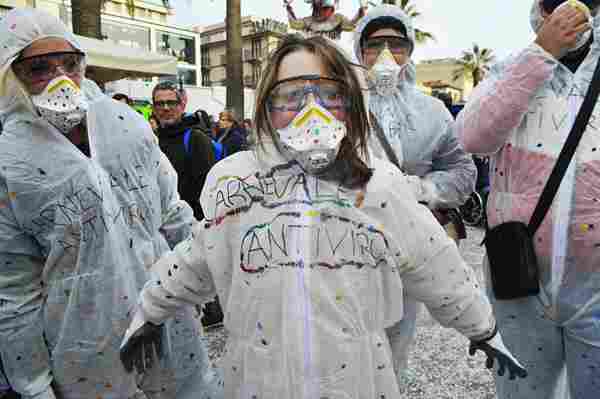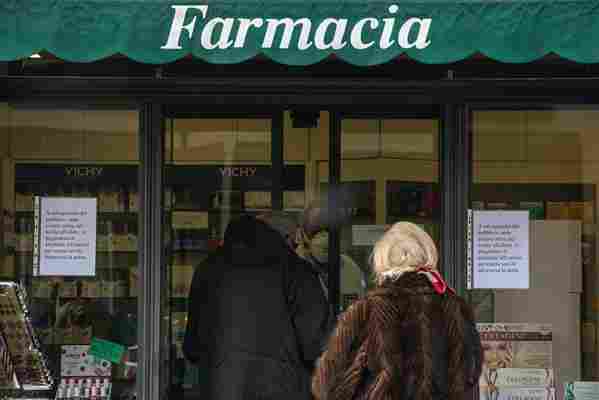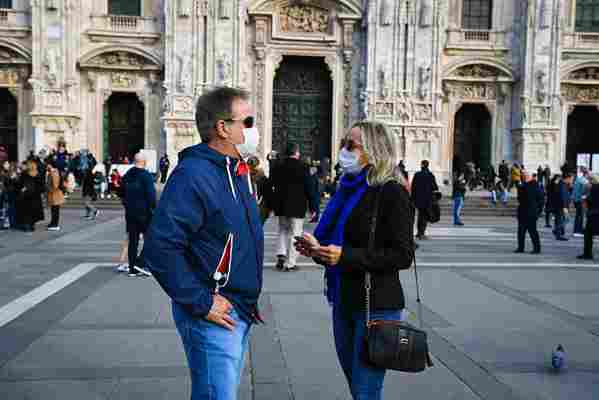Areas in northern Italy are under lockdown, as authorities close schools, businesses and public events including Venice's carnival, as the country battles the largest outbreak in Europe of the new coronavirus .

Eleven towns across Lombardy and Veneto in northern Italy are under lockdown after a cluster of cases of COVID-19 were diagnosed over the weekend. About 50,000 people cannot enter or leave quarantined towns without special permission, or risk fines. So far seven people have died in Italy and more than 200 have tested positive for the virus, sparking fear throughout the country.
When news of the outbreak broke, Venice Carnival ended two days earlier than scheduled and high-profile public events including Milan Fashion Week were disrupted, with fashion houses such as Giorgio Armani presenting to empty theatres on Sunday. In the town of Casalpusterlegno, a billboard instructs residents "to stay in your own homes", while public gatherings like football matches and church masses have been cancelled.

Even outside the quarantined zones, many businesses, bars and restaurants have made the decision to close their doors. Schools, universities, museums and cultural institutions have been suspended for at least a week from Monday, including the Duomo and the Teatro alla Scala in Milan, to halt the spread of infections.
Despite the increase in cases, European Comissioner Paolo Gentiloni has said there is "no need to panic". Speaking to reporters on Sunday he said, "the EU has full confidence in the Italian authorities and the decisions they are taking. We share concern for possible contagion [but] there is no need to panic."
Read more: How the coronavirus outbreak is impacting cruises around the world

Air and rail services are continuing amid the outbreak and travel advisories have not been issued, though many foreign offices and airlines have confirmed that they are monitoring the situation. On Sunday, Austrian officials stopped a train en route from Italy to Austria and Germany at the Austrian border to test two passengers for the virus, after they displayed flu-like symptoms. Austrian interior minister, Karl Nehammer, later confirmed to the BBC the tests came back negative so the train was allowed to continue.
The UK Foreign and Commonwealth Office (FCO) has advised travellers already in infected regions to follow the instructions of local authorities, with a warning to "self-isolate" and call NHS111 if they develop symptoms upon returning home. While the US State Department has said the "US Embassy continues to monitor the health situation in Italy and recommends that individuals follow Italian health official guidance and avoid government-designated affected areas."
Read more: What travelers need to know about the coronavirus as governments warn against travel to China
Elsewhere, Iran and South Korea are reporting significant outbreaks of COVID-19 coronavirus, alongside China, the disease's epicentre.
This article was first published on 24 February, 2020 and updated on 25 February.
Leave a Comment